

 |
David F. Collins, PhD Professor, Faculty of Kinesiology, Sport, and Recreation, Neuroscience and Mental Health Institute, University of Alberta Research topics: functional electrical stimulation, motor control, rehabilitation, reflex, motor unit |
|
Dr. Collins is a Professor in the Faculty of Kinesiology, Sport, and Recreation and is a member of the Neuroscience and Mental Health Institute at the University of Alberta in Edmonton, Alberta. His research focuses on minimising contraction fatigue during functional electrical stimulation (FES). He and his team are developing ways to incorporate physiological principles of motor unit recruitment that help reduce fatigability of voluntary contractions (Henneman's size principle, physiological discharge rates), into the way FES generates contractions. The goal of this work is to maximise the benefits of FES-based programs. |
|
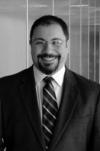 |
Frank J. Lane, Ph.D. Illinois Institute of Technology, Department of Psychology Research topics: assistive technology, ethics, qualitative methods |
|
Dr. Lane earned his Ph.D. and his master’s degree from the University of Florida. He currently works for Illinois Institute of Technology where he is an associate professor of psychology and associate chair of the department of psychology. He is the director of the rehabilitation engineering technology program and co-principal investigator of the intracortical visual prosthesis project. His major research area has been in the area of assistive technology with particular emphasis on implant technology for people who are blind. His specific emphasis is on the involvement of people who are blind in the development of technology, informed consent process and clinical trial process. |
|
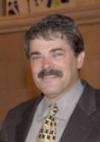 |
Paul Meadows Consultant to LivaNova, UK, previously VP of R&D & CTO, ImThera Medical, Inc. Research topics: Obstructive Sleep Apnea, Chronic Pain, Implantable Stimulation Technology |
|
Mr. Meadows is past Vice President and Chief Technology Officer for ImThera Medical, a medical device manufacturer of implanted neurostimulation technology for the treatment of Obstructive Sleep Apnea. Mr. Meadows has worked in the neurostimulation industry for over three decades and holds over 60 US patents in neurostimulation technology. He is currently a consultant to LivaNova UK, which acquired ImThera Medical in January, 2018. |
|
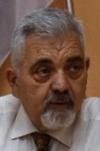 |
Dejan B. Popović, PhD, DrTec Member of Serbian Academy of Sciences and Arts Professor Emeritus, Aalborg University, Denmark Research topics: FES, Control, Therapy, Assisted exercise, Hybrid assistive systems |
|
Member of the Serbian Academy of Sciences and Arts, Belgrade, Serbia, member of Academy of Engineering Sciences of Serbia and professor emeritus at Aalborg University, Denmark. He published more than 100 papers in peer reviewed journals, wrote several books and textbooks, and holds patents. He was professor at the University of Belgrade, Serbia; University of Alberta, Edmonton, Canada; University of Miami, Florida, USA and Aalborg University, Denmark. He is Editor of the Journal of Automatic Control, Belgrade and associated Editor of the IEEE Transactions on Neural Systems and Rehabilitation Engineering and Medical & Biological Engineering & Computing. He is the member of the editorial board of Medical Engineering and Physics and Neurorehabilitation journals. He is fellow and the founding member of the EAMBES and IFESS. He is president of the Serbian Society for ETRAN. His research interests are in the domains of motor control, rehabilitation robotics, functional electrical stimulation and design of wearable assistive systems for persons with special needs. |
|
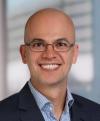 |
Dr. Dimitry Sayenko, MD, PhD Center for Neuroregeneration, Department of Neurosurgery, Houston Methodist Research Institute Research topics: Neuromodulation, spinal cord stimulation, neurorehabilitation |
|
Dr. Dimitry Sayenko graduated in 1996 from the Russian State Medical University with an MD degree. From 1996 to 2006, he was a researcher at the Institute for Biomedical Problems – the leading Russian research institute specializing in biomedical aspects of manned spaceflights. In 2005, he received a PhD in Aerospace Medicine, with a thesis on the effect of microgravity on postural control in cosmonauts and astronauts. Dr. Sayenko completed his postdoctoral training at the National Rehabilitation Center in Japan (2006-2008), as well as at the Toronto Rehabilitation Institute in Canada (2008-2012). From 2012 to 2014, Dr. Sayenko held a faculty appointment at the University of Louisville and the Frazier Rehab Institute, where he investigated the mechanisms of neuromodulation induced by epidural spinal stimulation. From 2014 to 2018, Dr. Sayenko worked on the team of Drs. Reggie Edgerton and Yury Gerasimenko at the UCLA, where he utilized spinal stimulation following spinal cord injury to recover sensorimotor function in the upper and lower limbs, as well as to regain postural control during sitting and standing. Dr. Sayenko’s current research at the Houston Methodist Research Institute focuses on the mechanisms and effects of spinal neuromodulation in the sensorimotor recovery after neurological disorders and injuries, including stroke and spinal cord injury. |
|
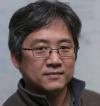 |
Ken Yoshida, Ph.D. Associate Professor of Biomedical Engineering, Department of Biomedical Engineering, Indiana University – Purdue University Indianapolis Research topics: Bioelectronics, Neural Interfaces, Neuromodulation, Nerve Block, Autonomic Nerves |
|
Ken Yoshida (PhD. Univ Utah, 1994) is an Associate Professor of Biomedical Engineering and has worked in the field of neural engineering through developing techniques to record, activate and block peripheral and autonomic nerve activity. He is active in the development and use of peripheral nerve interfaces, in particular the intrafascicular electrode (tfLIFE and TIME devices), for high resolution recording and high selectivity stimulation. In the past 5 years, he has worked to adapt methods developed for somatic peripheral nerves towards application in autonomic nerves as a means to monitor and modulate the activity in nerves involved in the automatic regulation of major organs in the body. Dr Yoshida is a member of the Society for Neuroscience and Tau Beta Pi, a senior member of the IEEE, and a founding member of the International Functional Electrical Stimulation Society. |
|
| 25 June 2019 / Tuesday Morning | |||
| 10:45-11:15 |
IFESS KEYNOTE LECTURE 1: Chair: Kei Masani Neuromodulation of Spinal Networks to Recover Motor Function: Underlying Mechanisms and Clinical Translations |
Dimitry Sayenko | |
| 11:15-12:00 |
Podium Session 1: Neural Circuits Chairs: Kei Masani, Dimitry Sayenko |
Presenting Author | |
| 6 | Median Nerve Electrical Stimulation Related Changes In Effective Connectivity In Subjects With Stroke | Yubo FAN | |
| 45 | Restoration Of Natural Sensory Feedback For Prosthetic Hands With Evoked Tactile Sensation | Man-Zhao HAO | |
| 33 | Characterization Of Optimal Electrode Configurations For Transcutaneous Spinal Cord Stimulation | Christina SALCHOW-HÖMMEN | |
| 26 | Effect Of Neuromuscular Electrical Stimulation On Excitability Of Subcortical Circuits In Trunk Muscles | Atsushi SASAKI | |
| 25 June 2019 / Tuesday Afternoon | |||
| 16:00-16:30 |
IFESS KEYNOTE LECTURE 2: Chair: Phil Troyk Implant Technology |
Paul Medows | |
| 16:30-17:30 |
Special Session 1: Snapshots of FES in Asian Countries Chairs: Phil Troyk, Paul Meadows |
Presenting Author | |
| S11 | Neurorehabilitation With Most Advanced Biomedical Engineering Technology | Yoichi SHIMADA | |
| S12 | A Survey On Functional Electrical Stimulation In China | Dingguo ZHANG | |
| S13 | FES In Malaysia: A Decade And Thriving | Nur Azah HAMZAID | |
| 17:30-19:30 | IFESS EB Meeting | ||
| 26 June 2019 / Wednesday Morning | |||
| 10:45-11:15 |
IFESS KEYNOTE LECTURE 3: Chair: Christine Azevedo-Coste FES to Bioelectronic Medicines: Neural Interfaces and Methods for the Autonomic Nervous System to Effect Changes to Organ Function |
Ken Yoshida | |
| 11:15-12:15 |
Podium Session 2: Novel Technologies Chairs: Christine Azevedo-Coste, Ken Yoshida |
Presenting Author | |
| 73 | Influence Of Electrode Geometry On Selectivity And Comfort For Functional Electrical Stimulation | Narrendar RAVICHANDRAN | |
| 70 | Wireless Glove For Estimation Of Hand Functions And Tracking Movement Amplitudes During FES Therapy | Jovana MALEŠEVIĆ | |
| 38 | Muscle Fatigue Assessment In A Wearable Neuroprosthesis Using Ultrasound Strain Imaging | Zhiyu SHENG | |
| 61 | Treatment Of Deep Tissue Pressure Injury Using A Novel Electrical Stimulation Paradigm | Vivian MUSHAHWAR | |
| 32 | Is It Possible To Use The Fes-Evoked Nociceptive Withdrawal Reflex As Feedback In A BCI System? | Erika G. SPAICH | |
| 26 June 2019 / Wednesday Afternoon | |||
| 16:00-16:30 |
IFESS KEYNOTE LECTURE 4: Chair: Ines Bersch Utilising Physiological Principles to Reduce Contraction Fatigability during Functional Electrical Stimulation |
David F. Collins, Ph.D. | |
| 16:30-17:30 |
Podium Session 3: Novel Technologies Chairs: Ines Bersch, David F. Collins |
Presenting Author | |
| 41 | Effects Of Different Types Of Neuromuscular Electrical Stimulation On The Excitability Of The Brain | David F COLLINS | |
| 24 | Computational Study On Spatially Distributed Sequential Stimulation For Fatigue Resistant Neuromuscular Electrical Stimulation | Silviu AGOTICI | |
| 21 | Gait Event Detection For Functional Electrical Stimulation During Lokomat Training | Andreas SCHICKETMUELLER | |
| 58 | A FES-Rowing Control Based On Upper Limb Kinematics | Lucas O. FONSECA | |
| 71 | Pilot Clinical Trial Of Novel Multi-Pad Based FES Grasping System And Two Treatment Modalities | Milica ISAKOVIC | |
| 27 June 2019 / Thursday Morning | |||
| 10:45-11:15 |
IFESS KEYNOTE LECTURE 5: Chair: Milos R. Popovic The Role of Functional Electrical Stimulation in Rehabilitation |
Dejan Popović, Ph.D., Dr.Tec. | |
| 11:15-12:15 |
Podium Session 4: FES Clinical Trials and FES in Clinical Practice Chairs: Milos R. Popovic, Dejan Popovic |
Presenting Author | |
| 29 | Neuroplasticity After Funcitonal Electrical Stimula-Tion Therapy (Fest) In Traumatic Brain Injury | Matija MILOSEVIC | |
| 56 | Restoration Of Upper-Limb Motor Function After Chronic Severe Hemiplegia Using Brain-Computer Interface-Controlled Functional Electrical Stimulation Therapy: Results From Two Case Studies | Lazar I JOVANOVIC | |
| 47 | Daily Gluteal And Hamstring Stimulation Improves Vascular Function, Limb Volume And Sitting Pressure In Sci | Thomas JANSSEN | |
| 52 | Biofeedback Fes-Cycling And Balance Training En-Hances Motor Recovery In Subacute Stroke Survi-Vors | Simona FERRANTE | |
| 49 | Aerobic Response Elicited By Hybrid Fes Cycling In Advanced Multiple Sclerosis | Che FORNUSEK | |
| 12:15-13:15 | IFESS General Assembly | ||
| 27 June 2019 / Thursday Afternoon | |||
| 16:00-16:30 |
IFESS KEYNOTE LECTURE 6: Chair: Cesar Marquez-Chin Using End User Perspectives to Develop Informed Consent Processes for Clinical Trials of Rehabilitation Technologies |
DFrank J. Lane, Ph.D. | |
| 16:30-17:20 |
Special Session 2: User and Ethical Considerations in FES Chairs: Cesar Marquez-Chin, Frank J. Lane |
Presenting Author | |
| S21 | Assessing Cognitive Function In A Clinical Trial Of An Intracortical Vision Prothesis | Melissa BANGLE | |
| S22 | Learning From Past Mistakes: A Case Study | Kristian NITSCH | |
| S23 | Understanding The Role Of Social Support In Clinical Vision Prosthesis Research | Frank LANE | |
| S24 | Matching User Needs And Expectations To Design Controls Requirements | Philip TROYK | |
| 17:20-17:30 | IFESS CLOSING CEREMONY | ||